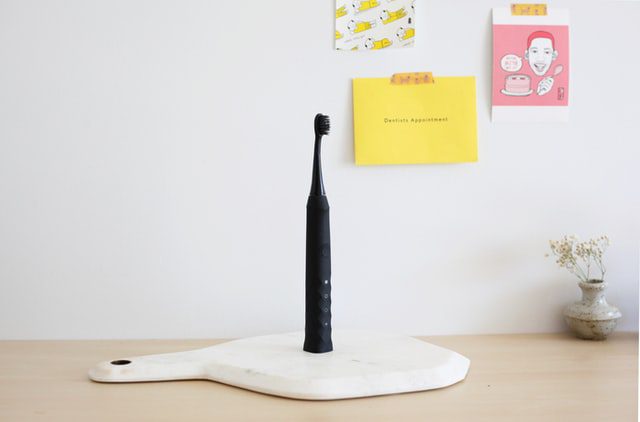As a dentist working in the field of oral health for 5 years, I often get asked about the electric versus regular toothbrush debate. Good oral hygiene is extremely important for good teeth and gum health. It is essential to brush at least twice a day, in the morning and at night. What’s more, is that it’s also important to regularly visit the dentist. Regular check ups regardless of how confident you feel about your oral health is important because the dental professional will be able to check the overall health of your teeth and for any trouble areas not visible to the eye. Moreover, as important as it is to brush twice a day, it is also important to pay attention to how you clean your teeth are. For this reason, electric or powered toothbrushes are often recommended over manual toothbrushes – as their results are often more thorough. These toothbrushes come with “genius” built-in tools such as real-time feedback, special brush modes and minute timers to help you make the most of each brushing session. It’s like having important reminders help you each time you brush. Investing in a good electric toothbrush can support your overall gum health and as a result serve to be cost-effective – you may end up less at the dentist!
The Electric VS Manual Toothbrush Debate
Good oral hygiene plays an important role in prevention of tooth decay and gum disease through the removal of plaque (a sticky film on teeth surfaces that contains bacteria). Dental plaque is a primary cause of gum inflammation and is implicated to periodontitis, a more serious gum disease that affects the tissues that support the teeth. Similarly, a build-up of plaque can also lead to tooth decay and gum disease, two of the most common reasons for tooth loss. There are various types of powered toothbrushes available in the market with different prices and modes of action. Each of these toothbrushes works in different ways, for example some work in a circular motions while others move from side to side.
Compared to manual toothbrushes, electric toothbrushes may be more more efficient. One independent study showed that there was an 11% reduction in plaque after one month of using an electric toothbrush, with a 21% reduction in plaque after three months of use. Electric toothbrushes reduce plaque and gum inflammation better than manual toothbrushes [1].
Pros & Cons Of Electric Toothbrushes
Pros
- Easier to use, especially for people with limited mobility
- Comes with a built-in timer
- Can be more fun for children to use
- Has built-in reminders
Cons
- More expensive than a regular toothbrush
- Can be damaged while travelling or by dropping
- Requires batteries that needs to be charged regularly
- Needs replacement heads
4 Best Electric Toothbrush According To A Dentist
The most important thing to remember with any toothbrush that you buy is that it should feature the American Dental Association (ADA) Seal of Acceptance. This seal of acceptance is recognised as a gold standard for dentists and consumers for evaluating the safety and efficacy of dental products. This seal means the product does what it says and is safe and effective when used as directed. Below are a few of the picks for the best electric toothbrushes according to me:
Issa
The Issa Electric Toothbrush combines pulse technology and a revolutionary silicone design that resists buildup of bacteria and comfortably massages the gums, preventing gum disease and damage to the tooth enamel. The soft bristles of the toothbrush are gentle enough for even the most sensitive teeth and gums.
Oral-B White Pro 1000 Power Rechargeable
This Oral-B Electric Toothbrush both rotates and vibrates. The brushes can rotate 44,000 times per minute which causes a lot of disruption of plaque. However, one study has shown that rotating and oscillating toothbrushes have a small edge over toothbrushes that simply just oscillate [2]. Likewise, because your teeth are curved, the rotating heads are more effective for getting to all sides of the teeth. The Oral-B White Pro is a basic, rechargeable model that offers three main features that dentists recommend: soft bristles, pressure sensor & a timer. This toothbrush eliminates any possibility of overzealous or aggressive brushing with its soft bristles. Moreover, the two-minute timer vibrates every thirty seconds when it is time to move to the next quadrant of your mouth, ensuring that you brush for enough time.
Oral-B 7000 SmartSeries Rechargeable Power
The Oral-B 7000 rechargeable power electric toothbrush has all standard features including six cleaning modes and a light-up pressure sensor. In addition to this, the electric toothbrush comes with Bluetooth connectivity that will allow you to track your brushing habits on your phone. The toothbrush has small brush heads which makes it a good choice if you a smaller mouth and gagging issues. A smaller brush also makes it easier to clean the molars (the most posterior teeth in the mouth). The toothbrush is more advanced and has more features compared to others. Similarly, if you have braces, this particular electric toothbrush is preferred because the brush heads are designed to navigate wires and bands in the mouth.
Philips Sonicare ProtectiveClean 4100 Plaque Control
Although the Philips Sonicare does not rotate, the soft bristled toothbrush is known for its large, flat brush head and oscillating motion. The toothbrush uses an ultrasonic vibrational energy to disrupt plaque. It helps shake off plaque and tartar and aids in removal of bacteria that cause gum inflammation. While the electric toothbrush does not have a rotating head, it will definitely give you a good cleaning. The vibrating toothbrush is designed to break up debris to allow toothpaste and fluid to access places that are hard-to-reach. The model is also equipped with a timer and pressure sensor.
Conclusion
While electric toothbrushes give patients the best cleaning, the choice between manual and electric can come down to personal preference. However, oftentimes ageing and certain medical conditions make it difficult to not only grasp but also manoeuvre the toothbrush to reach the surfaces of teeth. However, electric toothbrushes allow a larger population to keep their teeth clean more effectively. Thus, dentists often recommend electric toothbrushes over manual ones.
References
Yaacob M, Worthington HV, Deacon SA, Deery C, Walmsley AD, Robinson PG, Glenny AM. Powered versus manual toothbrushing for oral health. Cochrane Database of Systematic Reviews. 2014(6).
Deacon SA, Glenny AM, Deery C, Robinson PG, Heanue M, Walmsley AD, Shaw WC. Different powered toothbrushes for plaque control and gingival health. Cochrane Database of Systematic Reviews. 2010(12).





